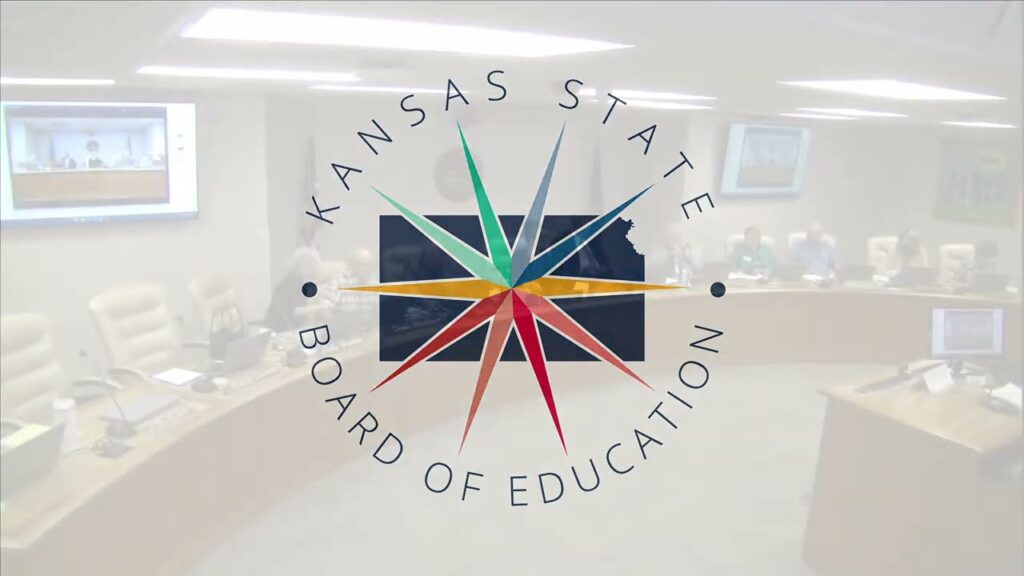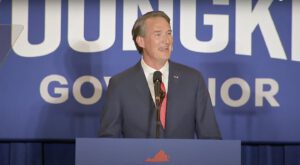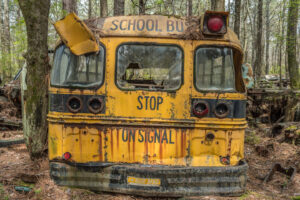Kansas Board of Education could swing left or right in pivotal election
Voters in Wyandotte and Johnson counties will determine the fate of the Kansas Board of Education in two critical races next week – whether it will lean more liberal or conservative for the next…

Voters in Wyandotte and Johnson counties will determine the fate of the Kansas Board of Education in two critical races next week – whether it will lean more liberal or conservative for the next four years.
Melanie Haas, the Democratic incumbent, is fending off challenges from Republican Fred Postlewait and Independent Kiel Corkran for the board’s 2nd District.
In the board’s 4th District, Democrat Kris Meyer and Republican Connie O’Brien are vying for the seat previously held by Democrat Ann Mah, who is not seeking re-election.
“Conservatives currently control four seats, but could have a majority if they pick up just two seats,” notes The Kansas City Star. “Conservatives and other critics of public education are eager for a chance to disrupt the status quo. In their view, schools have strayed too far from core academic subjects and they voice concerns with test scores and student performance.”
The article also quotes Haas criticizing conservative candidates as “religious ideologues” who are “using culture wars as the wedge when they really don’t know what’s going on inside of schools.”
2nd District: ‘Quality’ of schools, educational standards key issues
Haas argued an increase in test scores and new school assessment models provided evidence Kansas was “on track” academically, according to a primer released by the Johnson County Post.
However, Postlewait took issue with the reported increase in test scores: “This information was not made available to the general public until October 8.”
“This performance is simply not acceptable,” he said in his response. “The individual districts should make every effort to improve.”
Declining student scores have long created controversy in the state, with 2023 assessments showing “nearly half of Kansas public schools earned a ‘D’ or ‘F’ grade” on a scale of A-F, according to The Sentinel.
“This reporting system continues to provide opportunities to explore questions surrounding the issue of school performance,” said David Dorsey, senior education policy fellow with the Kansas Policy Institute (KPI), which owns The Sentinel.
“Why do some schools continue to outperform others? Why does the education establishment continue to lobby for more money when it is clear from this data that spending and school performance are not related?”
Postlewait also called for school districts to report to the board any “prudent and necessary” changes to educational standards each year, during the spring and early summer.
“The administration and teachers of each district will always view the future needs of education differently,” he told the Post. “The Board, in consultation with the various districts should take this information, study it, and determine the future requirements of Kansas Education.”
Haas did not suggest any changes to current educational standards, noting students already need to meet state “minimum core requirements and electives” before graduating.
In another primer, Postlewait argued while schools used to provide “quality education that the general public could afford,” he no longer views it this way: “Public education expenses are rapidly rising. … Local and state education push parents out of their children’s lives and values.”
Haas downplayed such concerns.
“People move to Johnson County for our excellent public schools,” she said in her response, adding, “If we don’t invest in public schools, it shows a lack of commitment to having the best schools.”
However, more people are seeing other educational alternatives as options the board should consider.
“Kansans overwhelmingly want kids to be in the best possible environment so that they can learn,” Rep. Kristey Williams, R-Augusta, told The Star. “I don’t think we should be confined to traditional methods of instruction that might be only public school. There are micro schools, there are homeschools, there are private schools.”
4th District: Former schoolteachers, different priorities
Both candidates for the 4th District are former schoolteachers, but with drastically differing views on the needs of public education.
Kris Meyer, who works for the USD 232 Education Foundation, served as a teacher, learning coach, and elementary school principal in De Soto, according to a 2024 KC Voter Guide from KCUR.
Connie O’Brien taught in Basehor-Linwood, McLouth, and Leavenworth, and worked as Sacred Heart Church’s director of religious education. She served from the 42nd District in the Kansas House of Representatives as a Republican from 2009 to 2017.
O’Brien emphasized teaching the basics “such as phonics for reading (a phonics program is being used in some districts), early math programs focusing on addition and subtraction (multiplication and division taught later), writing, and history,” she told the Post. “Parents need to be involved early on to help their child understand the importance of an education and to support the teacher.”
Meanwhile, Meyer stressed reliance on state testing data as “one tool” to measure student growth, adding results from new Kansas assessments will be published in October 2025.
“While these assessments are important, their relevance, particularly in high school, has been questioned since they don’t impact grades or post-secondary opportunities,” she told the Post.
Candidates also differed in their approach to curriculum and educational standards, with Meyer touting social-emotional learning (SEL) to help students’ emotional development.
As reported previously by The Lion, Missouri U.S. Sen. Josh Hawley has expressed concerns over SEL standards targeting white and Christian students.
“Critical social justice has become a religion for these people,” said one KC-area mother, who blames SEL for making her daughter feel pushed into declaring various forms of victimhood. “And so, they proselytize and disciple as if it were their religion.”
SEL often comes paired with Diversity, Equity and Inclusion (DEI) teachings, according to former Shawnee Mission teacher and parent Josiah Enyart.
“The DEI stuff really focuses on critical race theory and creating a separation – and more divisiveness than diversity between races – and kind of shutting down opinions and thoughts that are different than what’s in the program or what’s in that woke mentality.”
While O’Brien did not mention SEL in her election primer, she “strongly disagreed” with the statement, “I support Diversity, Equity, and Inclusion (DEI),” in an online voter guide questionnaire.
“I am a Christian and attend Church regularly,” O’Brien wrote when prompted to describe her spiritual beliefs and values. “I am also an American who believes that all men are created equal, that they are endowed by the Creator with certain unalienable rights that among these (are) life, liberty, and the pursuit of happiness stated in our Declaration of Independence.”



